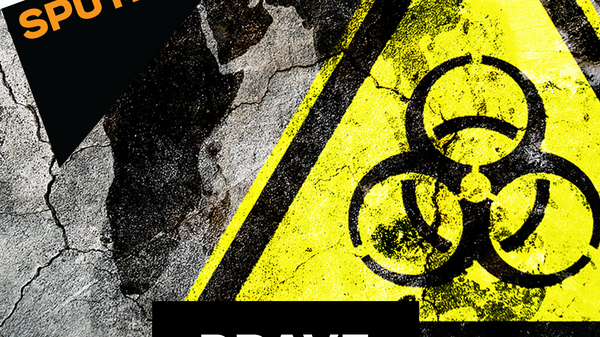Helen Borodina, a writer, translator, and re-enactment fan, and Elizaveta Rylova, head of the Moscow-based re-enactment group called St. Thomas Guild take part in the program.
Elizaveta starts the program by describing what re-enactment is in Russia. "Re-enactment for a lot of people is a kind of escapism on the one hand and research on the other. Many re-enactors are people deeply involved in history and the Arts. Many are scientists. We try to re-enact the way of life, the mindsets of people from a historical period, from the medieval era in my case, and it is exciting for me… This Saturday, as it happens, I will be involved in a 19th-century hunt. I have already taken part in a medieval hunting event, and now I am going to do this in the traditional Russian way." Participating in events is not free, and people do need to have enough resources to pay for costumes and hiring horses from the many stables all over Russia, as many events are on horseback. Spectators come from all walks of life. Elizaveta comments:" We have big events such as the St. George Tournament when all kinds of different people come. Normally many people come with their families….Children love to watch Knights in action and wave flags and support one knight or side or the other. Some foreigners come to participate, but they do not usually take sides according to their nationality, these re-enactment events seem to transcend that."
To the questions: do re-enactment events in Russia help Russians understand their own history? Elizaveta says: ‘Yes definitely, for example, many events take place in Russian regions and many scientists and archaeologists take part. They may have participated in archaeological digs, and written articles on the topic and this affects the way the re-enactment is carried out." Helen adds: "This is where the popularity of Napoleonic events comes in; because Napoleon spent so much time in Russia… you learn a lot through these events because local people are really open to talk about the history of the event. Of course, a re-enactment of events which took place during the First and Second World War is also very popular." In terms of whether or not re-enactment helps people to come to terms with historical events, Helen says: ‘I was born in Smolensk, which is named after a hero in the Napoleonic war…" In some cases, participation is not impartial. Elizaveta comments: "I have a friend who is a re-enactor of the Civil War in Russia. She re-enacts the White side. The situation was completely different there, because people, who re-enact the Red side, she says, are almost all communists in real life, and re-enactment is something more than role-playing for them. The re-enactors support the Monarchy, and they are quite conservative I would say."
Host John Harrison suggests that in such cases, re-enactment plays a cathartic role. Elizaveta says: ‘I would like to hope so, but the situation is quite different because there are a lot of political conflicts which interfere with re-enactments of the epoch and sometimes when we talk about winners and losers of the battle, an agreement has to be made that after each battle, there will be no winners and that war is a tragedy no matter what event is being enacted." Re-enactment events do have to follow historical events, and they cannot end up in a different way. But, as Helen says: "They have to, yes, but there have been incidents (laughing) when armies that are supposed to lose start chasing the winners, but that's more in fun than anything else."
We'd love to get your feedback at radio@sputniknews.com

